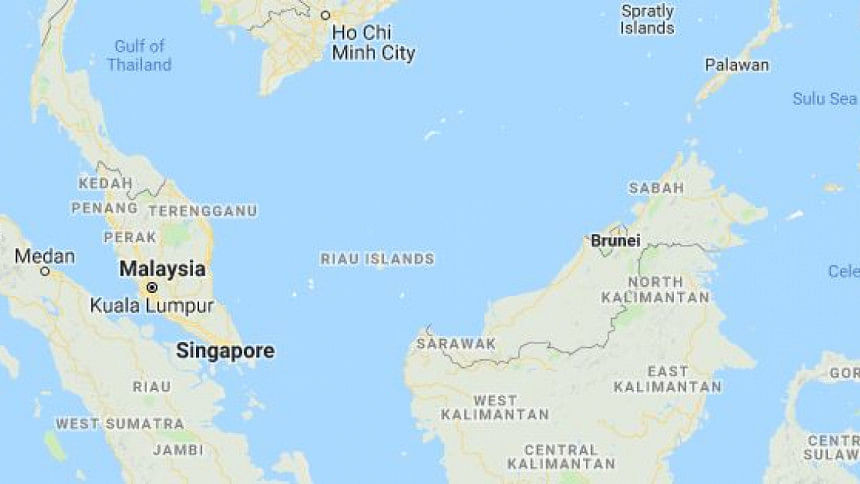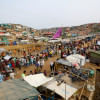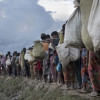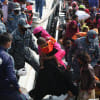Freedom on pitch

They may lack the glitz and glamour of the World Cup, but football clubs for stateless Rohingya refugees in Malaysia offer something more -- a 90-minute reprieve from a grinding existence on the fringes of society.
Malaysia is home to more than 70,000 people from the Muslim minority who have fled discrimination and persecution in predominantly Buddhist Myanmar, often enduring horrific journeys at sea to escape.
And while many struggle to eke out a living and are deeply scarred by the traumas of their past, football offers a welcome respite from cold, hard reality.
On a scruffy patch of ground on the outskirts of Kuala Lumpur surrounded by dilapidated buildings, those painful memories seem a world away as players pass the ball and take shots before a small crowd of spectators.
"Football takes away all of my stress for 90 minutes," Mohammad Ishak, a 17-year-old team member, told AFP. "It helps you to forget some of your problems."
Nine teams took part in a recent tournament to mark the major Islamic festival of Eid-al-Fitr.
There was a particular buzz as the tournament coincided with the World Cup. Play was punctuated by excited chatter about the latest matches in Russia and many wore shirts of their favourite teams, from Argentina to Germany.
Some expressed the hope a Rohingya team might one day compete in the world's most prestigious football tournament -- an unlikely dream for an ethnic group that doesn't even have a country to call home.
Relatively affluent Muslim-majority Malaysia has long turned a blind eye to the influx of Rohingya.
Despite not officially being allowed to work, they have become a cheap source of labour in menial jobs, from cleaning to labouring on building sites.
And while life is better than in Myanmar, getting by in Malaysia can still be tough for the Rohingya, who have no access to basic services such as education and healthcare.
AWFUL PAST
In 2015 the Rohingya Football Club (RFC) was set up to give members something constructive to do in their free time, and provide some release from unfulfilling, insecure existences.
Other Rohingya clubs have since sprung up across the country, playing against each other or local Malaysian sides.
The three-day Eid tournament gives the mostly young men something positive to focus on at a time when they may be missing family members back home and dwelling on dark memories, organisers say.
RFC secretary Mohammed Faruk said it is common for Rohingya to have flashbacks to traumatic experiences, such as military crackdowns back home that have driven one million members of the minority into vast refugee camps in neighbouring Bangladesh.
"There are a lot of Rohingya who lost their parents, who lost their siblings, who lost their homes," the 23-year-old told AFP.
"It's really awful when they think about their past."
'IT ELIMINATES DISCRIMINATION'
Faruk wants to take a Rohingya squad to the CONIFA World Football Cup, a biennial competition for teams sidelined by the official competition, which includes sides representing minorities, isolated dependencies and cultural regions.
Beyond easing day-to-day frustration, playing football has helped to tackle prejudice and break down barriers between Rohingya and the local population.
"It eliminates discrimination," said RFC's Ishak, adding he had got to know many Malaysians through football.
The Rohingya in Malaysia have had more reason to be optimistic recently -- a surprise change in government at elections in May has brought to power an administration more sympathetic to their plight.
The new government pledged in its manifesto to ensure the "legal right to work" of refugees in the country, which -- if honoured -- could help Rohingya find better opportunities than the few low-paying sectors currently willing to hire them.

 For all latest news, follow The Daily Star's Google News channel.
For all latest news, follow The Daily Star's Google News channel. 







Comments